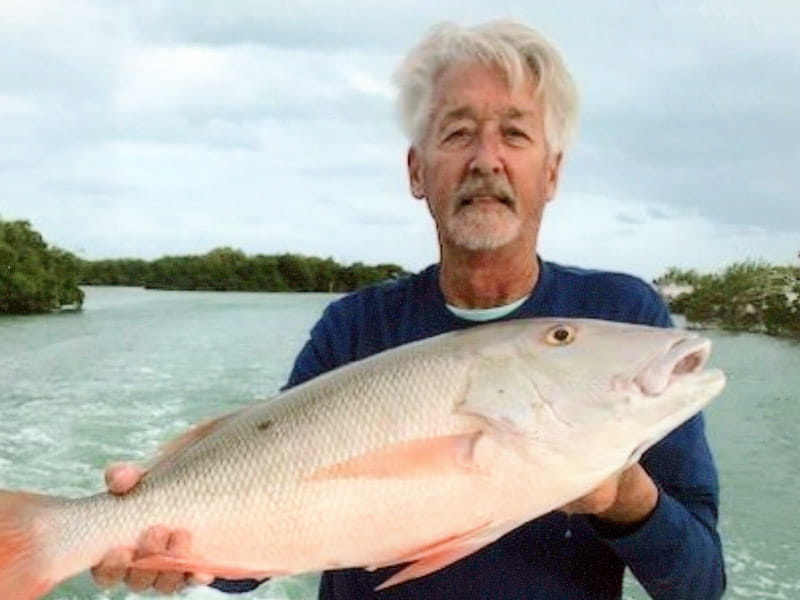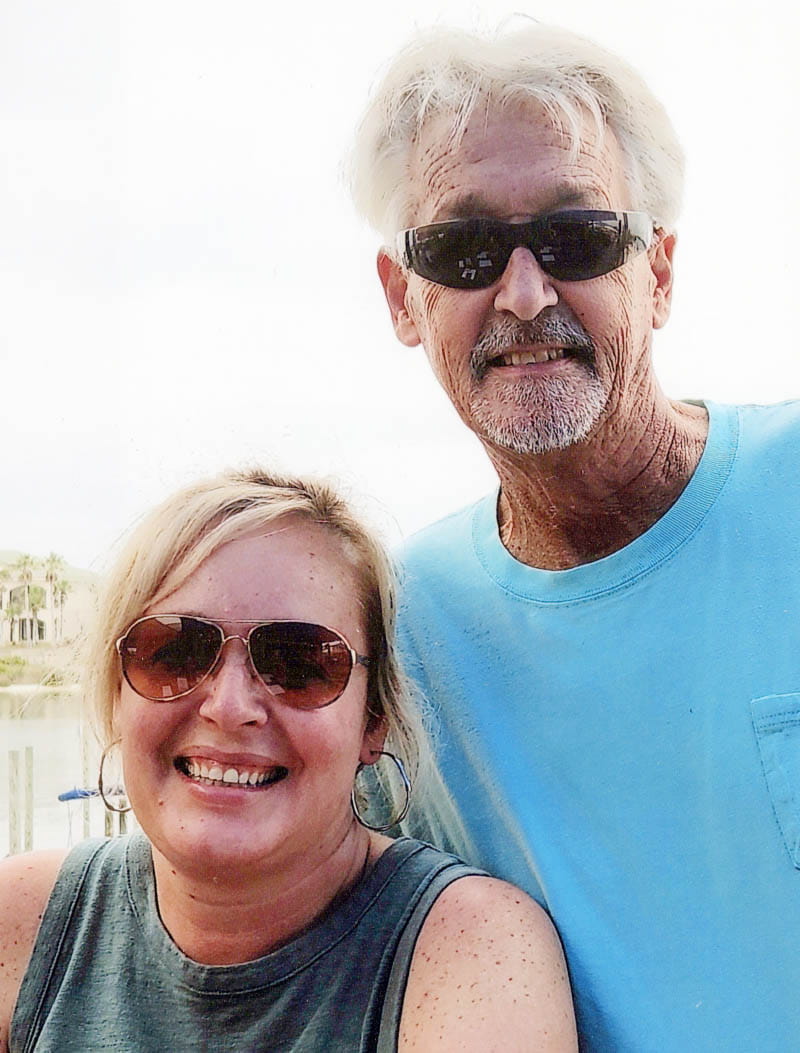At 71, he's back to fishing and renovating houses after a heart transplant
By Deborah Lynn Blumberg, American Heart Association News

Home builder Keith Hoch was in his early 50s when he started to feel sluggish while building houses for his clients in and around Toms River, New Jersey.
His doctor diagnosed him with a cold, then the flu. He didn't respond to treatment. His doctor's next guess was a bacterial infection. Hoch took several rounds of antibiotics, but still didn't improve.
Further testing showed his lungs were full of fluid. The right side of his heart wasn't pumping blood well, either. Hoch had idiopathic dilated cardiomyopathy. It's a condition in which the heart weakens and its chambers enlarge. His doctors weren't sure why it was happening. Hoch suspected a respiratory infection had caused it.
Hoch started several medications to help his heart pump blood, and he started to regain energy. A year later, his heart started beating erratically. He had an ablation, a procedure that destroys small areas of heart tissue to help restore the heart's regular rhythm.
That same year, doctors implanted a pacemaker-defibrillator in Hoch's chest. If his heart developed an abnormal rhythm or stopped, the device would shock it back into a normal rhythm. Over the next few years, it shocked him twice.
For about the next decade, Hoch kept working and enjoying life. He continued building houses and traveled often to fish, a hobby he embraced after childhood summers on his grandfather's boat.
During that time, Hoch had three more ablations and regular cardiologist appointments, and he got a second defibrillator after the first one deteriorated from wear and tear. During one checkup, his doctor dropped a somber warning: "Someday, you're going to need a new heart," she told him. "You're going to wear this one out."
A few years later, Hoch started feeling more exhausted after working on houses and during fishing trips. So, he received another device: a battery-powered pump that would deliver medication to his heart to strengthen it and widen his blood vessels.
Kelli Boilanger could tell from phone calls that her father wasn't doing well. She packed a bag and moved in with him, not knowing exactly when she would return home.
Hoch was always connected to the pump. He refilled it with medication and changed the batteries every two days. It helped. He had more energy – but it was a patchwork solution. His body was likely to get used to it, his doctor said, ultimately making it less effective.
Months later, Hoch was carrying a plate of raw hamburgers to the grill during a Fourth of July barbecue at his house. Boilanger thought he looked frail. She worried he would drop the plate. She didn't say anything because she didn't want to upset her dad by doubting him.
Seconds later, the hamburgers fell to the ground. His face crumpled. She worried more about his health.
Not long after, Hoch saw his cardiologist. During the appointment, his doctor called a colleague at Robert Wood Johnson University Hospital's Advanced Heart Failure, VAD and Cardiac Transplant Program. It was time for a new heart.
As he waited, he took a fishing trip to the Florida Keys. Back in the Newark airport, he huffed and puffed. He could barely walk out of the airport.
Both of his lungs turned out to be infected. His kidneys were failing, and his liver had weakened from a lack of blood supply. He walked into the emergency room that November so sick that he didn't recognize his daughter.
"You're not leaving here without a new heart," his doctor said.
But there was a problem. Hoch was too sick to stay on the transplant list.
Over the next eight weeks, a team of specialists, including cardiologists and nephrologists, worked to get him well enough to be listed again. There was one wrinkle to his candidacy: He'd need a heart large enough to accommodate his 6-foot-4 stature. He took dozens of medications and had a small pump put in his chest to support his heart.
Slowly, he started to feel better. Finally in early January, he was listed. The next day, his doctor walked in his room to inform Hoch that a perfect match had been located. Finally, a week into 2021 – 17 years since his heart problems first began – he got a new heart.
When Hoch woke up, he video chatted with Boilanger and his son, Matthew Hoch. Keith was amazed at how good he felt. He'd been in bed for 55 days, lost 57 pounds and his muscles were atrophying. But with the help of a nurse and a walker, Keith felt strong enough to walk.
Ten days later, he went home. Boilanger cooked and they took walks together. Keith jokingly called her "the warden" because of how closely she watched over him.

Boilanger's son, Tyler, and two of his fellow Army soldier friends modified a stool and recliner for Keith, lifting the pieces of furniture up so Keith didn't have to bend down to sit.
After four weeks, Keith could drive again. He passed a gym and signed up on the spot. He walked on the treadmill and rowed, which he enjoyed after rowing crew in college.
He went on his first fishing outing with his new heart four months after the transplant. He took his own boat out off the coast of New Jersey.
"My dad is back to living his life," Boilanger said.
Now, Keith keeps busy renovating and selling houses and has a new girlfriend. In June, the two took a trip to Cape May. The week after, Keith caught mahi-mahi and tuna in the Florida Keys. He often gives frozen fish fillets to his doctors, nurses and office staff.
"I'm doing terrific now, and I've got everything I need," Keith said. "I'm 71 years old, but I just do not feel like that."
Stories From the Heart chronicles the inspiring journeys of heart disease and stroke survivors, caregivers and advocates.





